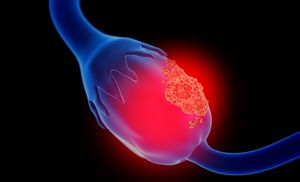Attendees at UCD’s Charles Institute Seminar Series heard an introduction by Dr Jillian Doyle to the discipline of psychodermatology and how its application can potentially improve outcomes
The Charles Institute, Ireland’s national dermatology research and education centre, hosts a range of guest speakers who cover a variety of topics ranging from skin cancer to psoriasis, among many others. The series, which is sponsored by RELIFE (part of the A.Menarini group), is designed to provide expert advice from a range of distinguished national and international experts in their respective fields and is chaired by Prof Desmond Tobin, Full Professor of Dermatological Science at UCD School of Medicine and Director of the Charles Institute of Dermatology. The seminars are broadcast to attendees with a special interest in dermatology and cutaneous science in other locations, who access the talks remotely via an audio-visual link.
The seminars are held using a hybrid model, combining in-person attendance with interactive online access.

The attendees heard a presentation by Dr Jillian Doyle, Senior Clinical Psychologist in the Specialist Perinatal Mental Health Team in the Rotunda Hospital, Dublin. Dr Doyle also works with the Department of Psychological Medicine at the Mater Misericordiae Hospital in Dublin, where she provides a service for patients attending the Dermatology and Cardiac Rehabilitation teams.
Dr Doyle addressed the seminar on the role of psychology in patients with dermatological issues and outlined how the fields of dermatology and psychology overlap, and how psychology can help to enhance patients’ quality-of-life and improve outcomes. She presented a number of case studies and told the attendees: “Psychodermatology is all about connecting the dots between the skin, stress, emotional wellbeing, and providing supports to people with pre-existing skin conditions,” she said.
“The discipline focuses on the overlap between dermatology and psychology; it holds that by only treating the skin, you may not be getting to the root of the issue. Psychologists and psychiatrists who work in this area research the role that stress plays in different skin disorders, or how skin disorders can lead to psychological consequences – for example, difficulties with self-esteem or problems with people’s views of themselves.” The types of issues commonly seen by psychodermatologists include anxiety (including social anxiety) and depression.
Interventions
Typically, interventions include helping dermatology patients to deal with psychological issues or, in the field of health psychology, helping patients to avoid developing certain conditions, such as melanomas. “Research shows that psychological interventions and the promotion of self-care may be a key factor in the treatment of some long-term chronic conditions,” Dr Doyle told the seminar. “It’s really important to think about how the brain and the central nervous system develop at the same time in utero; there is a lot of interaction between the skin and the mind. Psychodermatology complements the other line of treatments but there are little or no services in Ireland in this area, although Northern Ireland has a dedicated psychodermatology clinic.”
Approximately 90 per cent of people with skin diseases report that their condition affects their emotional and psychological wellbeing, and in the UK, some 18 per cent of these people receive some kind of psychological support, Dr Doyle pointed out.
Dr Doyle gave the attendees an overview of the therapy process for people with skin diseases and presented case studies of psychodermatology patients of different ages and with different skin conditions. One of these included a patient suffering with hidradenitis suppurativa (HS), a potentially devastating and stigmatising condition that is notoriously difficult to treat and manage due to its abscesses and scarring characteristics. She also invited the attendees to participate in an interactive ‘selfie’ exercise to illustrate the power of a person’s perception of self, in comparison to what other people see. This relates to the lack of self-worth and self-esteem people with skin conditions suffer with and is a useful awareness exercise, Dr Doyle explained.
“The impact of clinically-significant skin disease may not be life-threatening, but it can be life-ruining,” said Dr Doyle. “A lot of people report symptoms of anxiety and depression and a considerable minority have suicidal thoughts… some of the other impacts are that people don’t stick to their medication regimens, or they use maladaptive coping mechanisms. These people can lose work days or have to withdraw from work, or be unable to get work, or experience discrimination in the workplace.” The relationships of these patients also suffer, and even those with skin conditions who are in a relationship may feel isolated from those closest to them, she added.
The impact of clinically-significant skin disease may not be life-threatening, but it can be life-ruining
Infections
It is recognised that a person’s mental state can influence their response to infection and in parallel with this, a person’s physical illness affects their emotional wellbeing, she pointed out. “Some psychiatric disorders are expressed in the body and often, people will see a dermatologist first because they see the physical manifestations first,” she continued. “Secondary psychiatric disorders are when the chronicity of the skin condition, or the stress caused by the condition, lead to psychological consequences. Something that is fairly visible can lead to consequences such as poor body image or low self-esteem, and subsequent depression and anxiety.”
Expanding on the relationship between emotional stress and exacerbation of skin conditions, Dr Doyle commented: “This response is through the hypothalamic-pituitary-adrenal axis, which ultimately leads to either a dysregulation of cortisol or too much cortisol, which can have a major impact on the immune system,” she told the seminar. “It also releases the ‘fight or flight’ hormones, which can have an impact on the skin barrier and inflammation and impact wound-healing. If this happens again and again, we often see chronic activation of the stress hormones on the skin, and this increases the reactivity to stimuli.”
Stress not only influences skin conditions, but also has an effect on the ageing process, she added, and therefore it is vitally important to help people to manage their stress levels, particularly if that stress is exacerbating a pre-existing medical condition. This is where an intervention with a psychodermatologist can yield results, said Dr Doyle.
The new clinical programme for dermatology in Ireland recognises the need for psychodermatology and suggests that psychodermatologists be linked to different teams in a hub-and-spoke model, and that the appointment of psychologists will assist people living with chronic skin conditions. This could help these patients to build resilience and develop coping strategies, reducing the impact of a skin disease on their lives, she concluded.
Standards and stigma
Dr Doyle’s presentation generated a lot of audience interest and during an interactive Q&A session, Prof Tobin commented on the general perception among some members of the public of people with a visible skin condition. Unrealistic portrayals of impossible-to-achieve beauty standards in advertisements, etc, are combined with a society that has supposedly become more tolerant to individuals’ appearance. “What is it about society that we almost seem to be going in the opposite direction,” he said, pointing out that in an apparently more tolerant society, stigma around skin conditions still exists. “That isolation and disconnect that is experienced by people with skin disease seems almost enhanced compared to what it was 15 or 20 years ago… what do you feel needs to be done now to push back that tide?”
Dr Doyle commented: “This is a huge thing and it’s in every realm [of society]. We are all told that we can be the ‘star in our own life’, and that is really hard to step out of… for good or bad, people have stepped away from things that they used to believe in, such as belief value systems, particularly in Ireland. Now we have a vacuum that has been filled by celebrities, beauty and so on. So I think [we need] a macro view on what society does, and also on an individual level in terms of what we can do. We need to think about how we can move towards people who are suffering, rather than away from them.”
RELIFE has had no input into the content of this article or series of seminars













Leave a Reply
You must be logged in to post a comment.